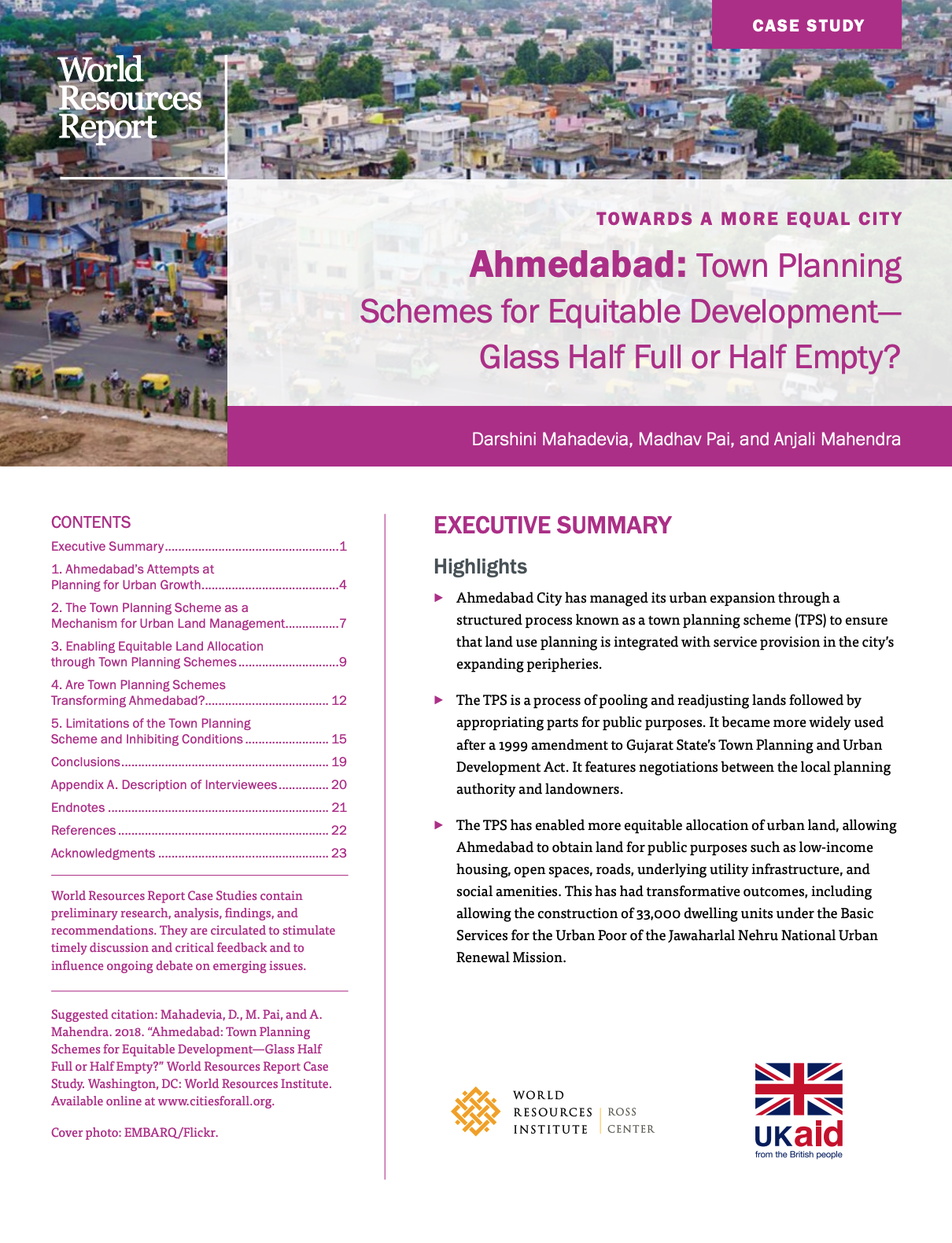Resource information
This case study in the World Resources Report, “Towards a More Equal City,” examines transformative urban change in Ahmedabad, India, by analyzing the land pooling and readjustment mechanism called Town Planning Scheme (TPS). This paper reviews the evidence on whether the TPS mechanism has enabled transformative change with equitable outcomes in Ahmedabad City—and if so, how.
Ahmedabad, a UNESCO World Heritage city in the state of Gujarat in India, uses a structured process known as a Town Planning Scheme to secure urban land for public services and ensure a more equitable distribution. With the TPS, the city has been able to obtain land for public purposes such as low-income housing, open spaces, roads, utilities, and social amenities, avoiding much of the haphazard, unserviced expansion that characterizes many other Indian cities.
The TPS mechanism in Ahmedabad is considered a relatively successful model because it produces more equitable outcomes. This mechanism has enabled transformative outcomes in the city such as construction of thousands of well distributed social housing units, and expansion of well-planned road network that allowed to connect the city through India’s largest Bus Rapid Transit. The TPS also increased street density in the city, which has helped improve accessibility, reduce average trip lengths, and reduce road congestion; enabled negotiated and non-coercive land appropriation by the planning authority for public purposes; and accommodated informal settlements in the planning process.
Case studies in the World Resources Report, “Towards a More Equal City,” examine transformative urban change defined as that which affects multiple sectors and institutional practices, continues across more than one political administration, and is sustained for more than 10 years, resulting in more equitable access to core services. The goal of “Towards a More Equal City” is to inform urban change agents – government officials, policymakers, civil society organizations, citizens, and the private sector – about how transformative change happens, the various forms it takes, and how they can support transformation towards more equal cities.

